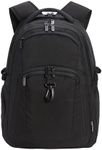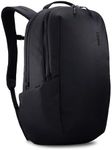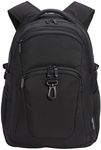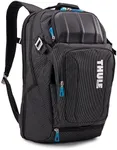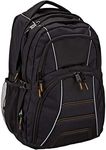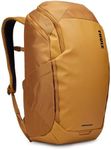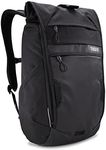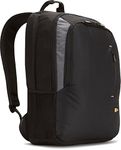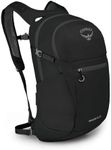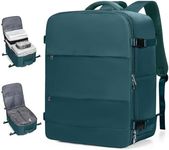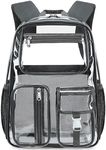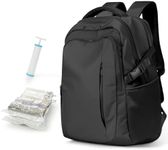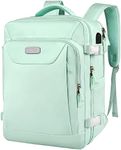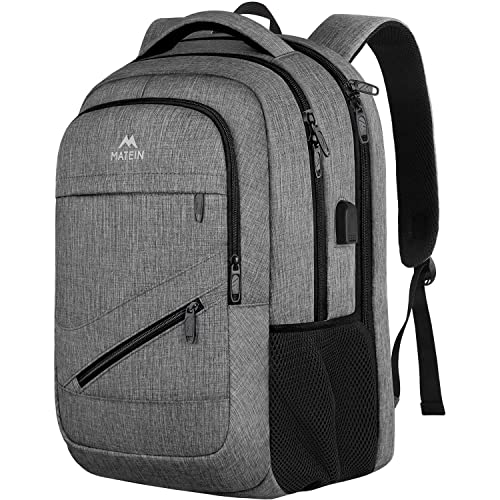Buying Guide for the Best Laptop Backpacks
Choosing the right laptop backpack is essential for ensuring the safety and convenience of carrying your laptop and other essentials. A good laptop backpack should not only protect your device but also provide comfort and functionality for your daily needs. Here are some key specifications to consider when selecting a laptop backpack.Size and CompatibilitySize and compatibility refer to the backpack's ability to fit your laptop. This is important because a backpack that is too small won't accommodate your laptop, while one that is too large may not provide adequate protection. Laptop backpacks are usually designed to fit specific laptop sizes, such as 13-inch, 15-inch, or 17-inch. To pick the right one, measure your laptop's screen size diagonally and choose a backpack that matches or slightly exceeds this measurement. Ensure the laptop compartment is well-padded and has a secure strap to keep your device in place.
Material and DurabilityThe material and durability of a laptop backpack determine how well it can withstand daily wear and tear and protect your belongings. Common materials include nylon, polyester, and canvas, each offering different levels of water resistance and durability. Nylon and polyester are lightweight and water-resistant, making them suitable for everyday use and travel. Canvas is more durable and offers a classic look but may be heavier. Choose a material based on your lifestyle and the conditions you'll be using the backpack in. If you need extra protection from the elements, look for backpacks with water-resistant coatings or rain covers.
Comfort and ErgonomicsComfort and ergonomics are crucial for ensuring that carrying your backpack doesn't strain your back and shoulders. This includes features like padded shoulder straps, a padded back panel, and an adjustable sternum strap. Padded shoulder straps distribute weight evenly, reducing pressure on your shoulders. A padded back panel provides cushioning and promotes airflow to keep you cool. An adjustable sternum strap helps stabilize the backpack and prevent it from shifting. When choosing a backpack, try it on to ensure it fits comfortably and adjust the straps to find the best fit for your body.
Storage and OrganizationStorage and organization refer to the backpack's ability to hold and organize your belongings efficiently. This includes the number and types of compartments, pockets, and dividers. A good laptop backpack should have a dedicated laptop compartment, as well as additional pockets for accessories like chargers, cables, and a mouse. Look for backpacks with multiple compartments to keep your items organized and easily accessible. Some backpacks also feature external pockets for water bottles and quick-access items. Consider your daily needs and choose a backpack with enough storage options to keep your essentials organized.
Security FeaturesSecurity features are important for protecting your laptop and other valuables from theft. These can include lockable zippers, hidden pockets, and RFID-blocking compartments. Lockable zippers allow you to secure your backpack with a small lock, deterring potential thieves. Hidden pockets provide a discreet place to store valuable items like your wallet or passport. RFID-blocking compartments protect your credit cards and ID from electronic theft. If you frequently travel or commute in crowded areas, consider a backpack with enhanced security features to keep your belongings safe.
Style and DesignStyle and design are personal preferences that reflect your taste and how you want to present yourself. Laptop backpacks come in various styles, from sleek and professional to casual and sporty. Consider the settings in which you'll be using the backpack, such as work, school, or travel, and choose a design that suits those environments. Additionally, think about color options and any extra features like reflective strips for visibility. Ultimately, select a backpack that not only meets your functional needs but also complements your personal style.
